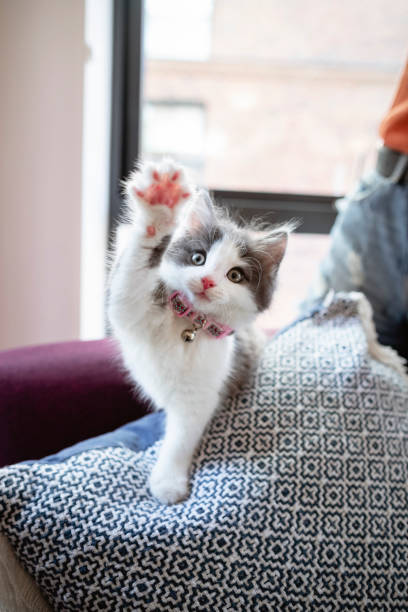Clumping vs. Non-Clumping Cat Litter: What's Best for Your Feline?
Wiki Article

Cats are beloved companions in countless households worldwide, and part of the responsibility of feline ownership involves choosing the ideal litter and litter box that fits both the requirements of our feline pals and our own. With a myriad of options offered, navigating through the choices can be frustrating. This guide aims to streamline that process, supplying you with everything you require to learn about cat litter, litter boxes, and systems.
The primary step in cat care is picking the right cat litter. Alternatives vary from clumping, non-clumping, silica gel, natural, and organic ranges. Clumping litter is popular for its ease of cleansing, while non-clumping litter is often cheaper and still efficient. Natural and organic litters offer eco-friendly choices however can vary in their absorbency and odor control abilities.
Modern feline owners can pick from a range of litter box systems, including automated and self-cleaning models that provide benefit and reduced upkeep. These systems can be a substantial investment however deserve thinking about for those with busy lifestyles.
Eco-conscious cat owners have numerous alternatives, including naturally degradable and flushable cat litters that decrease environmental impact. However, it is necessary to balance convenience with environmental concerns, as some flushable litters might not appropriate for all pipes systems.
Proper training is essential, particularly for kitties or felines transitioning to a brand-new kind of litter or box. Consistency and perseverance are crucial. Routine cleaning and maintenance of the litter box are crucial for the health and well-being of your cat, as well as for odor control in your home.
The advantages and disadvantages of various kinds of cat litter are large. Silica gel litter is extremely absorbent and lasting but can be more costly. Natural litters, while much safer for the environment, might not control odors as efficiently as synthetic choices. Understanding the specific needs of your cat and your choices for upkeep can assist in making the very best option.
When selecting a litter box, consider the size, shape, and style that will best suit your feline. Some felines choose open boxes, while others like the personal privacy of a covered box. Senior cats and kittens Grass Cat Litter might require boxes with lower sides for simple gain access to.
Smell control is a considerable concern cat litter box enclosure for many cat owners. Choosing the right kind of litter, routine cleansing, and using accessories like odor removers and litter mats can help keep your home smelling fresh.
The health monitoring litters readily available today can signal owners to possible health problems by changing color in response to modifications in pH or the existence of blood. Furthermore, the environmental impact of cat litter is a crucial factor to consider, with numerous owners selecting biodegradable or recycled alternatives.
Picking the best cat litter, litter box, and maintenance regimen is necessary for the health and happiness of your cat, along with for keeping a tidy and odor-free home. By considering the requirements of your feline and the practical elements of litter and litter box upkeep, you can create a comfy and sanitary environment for your furry buddy.
How often should I alter my cat's litter? It depends upon the type of litter you're utilizing and how numerous cats utilize the box. Clumping litter should be scooped daily, with the whole box changed every 2-4 weeks. Non-clumping litter often needs more frequent modifications.
Are automated litter boxes worth the investment? Choosing the ideal cat litter, litter box, and maintenance regimen is important for the health and happiness of your feline, as well as for keeping a tidy and odor-free home. By considering the requirements of your cat and the practical elements of litter and litter box maintenance, you can create a comfy and hygienic environment for your furry pal. For many, the benefit and decreased upkeep of automated litter boxes make them a worthwhile financial investment. However, some cats might be afraid of them, so it's not a one-size-fits-all option.
Can diet impact litter box odor? Yes, a feline's diet can considerably affect the odor of their waste. Premium, easily absorbable foods tend to produce less smelly waste.
By understanding the huge world of cat litter, litter boxes, and systems, you're well on your way to offering a tidy, comfy, and sustainable cat litter box furniture environment for your cat.
Selecting the right cat litter, litter box, and maintenance regimen is necessary for the health and happiness of your cat, along with for keeping a tidy and odor-free home. By thinking about the needs of your feline and the useful elements of litter and litter box maintenance, you can produce a comfy and hygienic environment for your furry pal.